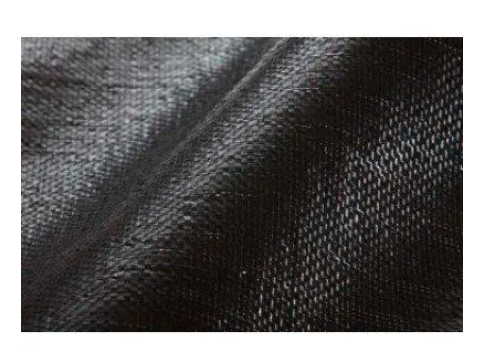- Understanding the Role of Geomembrane Liners in Waste Management
- Innovations in Geomembrane Liners for Water Management
- Geomembrane Liners: A Comprehensive Guide
- The Future of Geomembrane Liners in Civil Engineering
- Geomembrane Liners: Enhancing Landfill Stability
Manager:
WhatsApp:+86 177 0135 2670
Tel:+86 177 0135 2670
Email:marketing@okorder.com
Address:3rd Floor, No.2 Building, No.1 Sanlihe Road
Geotextile Filter Fabric: The Unnoticed Hero in Construction and Landscaping
In the complex world of construction and landscaping, where every detail counts, the geotextile filter fabric turns out to be unsung heroes. This is a synthetic fabric that can be used in many different projects such as soil reinforcement, water flows control or any other project. This article dives deep into the realm of geotextile filter fabric by exploring its unique characteristics, applications and far reaching impact on the construction world and environmental conservation.
The Silent Guardian: Geotextile Filter Fabric
Geotextile filter fabric is known as a specialized kind of Geotextiles which are made specifically for filtration purposes. It is an essential material well-suited for numerous construction as well as environmental projects like erosion control, drainage, or soil stabilization among others. Usually this textile is permeable and consists of synthetic fibers meaning it can be used in various civil engineering-architectural activities as it allows water to pass through while preventing soil particles from passing.

Applications in Construction and Landscaping
The backbone of construction and landscaping projects hinges on geotextile filter fabric. It could be utilized for reinforcing soil structures; therefore controlling erosion but also enhancing on water flow and drainage system. Its efficiency lies in that it drains off water while keeping particles of soil making it a perfect choice where French drains are concerned together with drainages systems that require very effective management of water.
Drainage Systems: A Key Application
One major application area for geotextile filter fabric is found in drainage systems. Often times this cloth helps to prevent erosion because it does not hold back the passage of water hence maintaining lands stability by reducing soils moisture content absorbed by one’s earth crust surface layers. In road building process, this function operates like a sieve whose objective is to keep different types of soils apart so that they don’t mix too much thus improving the performance and lifespan of this road.
Erosion Control: A Vital Role
In erosion control, geotextile filter fabric is an essential material as it is used to hold soil on slopes, embankments and shorelines by allowing water to drain through it while preventing displacement of soil. This is important for ecological preservation purposes because it maintains a healthy environment in which the most productive topsoil remains intact.
Environmental Protection: A Sustainable Choice
Geotextile filter fabric plays an important role in environmental conservation. Some of these applications include landfill linings, sediment controls or shoreline protection projects that help prevent soil contamination, manage sediment loads and fight off against coastal erosion. In this case, its usage signifies a commitment towards sustainable construction practices which aim at minimizing resource utilization inefficiencies as well as mitigating damage to nature.
The Three types of geotextile Fabric
Understanding the different types of geotextile fabric is crucial for selecting the right material for a project. The three main types are:
woven geotextiles: They involve interlacing fibers together creating fabrics that have high tensile strength and stability thus can be successfully utilized for applications requiring robust reinforcement.
Non-Woven Geotextiles: Made up of fibres which are bonded together using either mechanical, chemical or thermal methods they are particularly useful in filtration and drainage roles because they have a porous structure.
Knitted Geotextiles: These geotextiles are made using knitting techniques so that they can easily stretch or flex according to irregular surfaces thereby making them ideal for these kinds of projects such as those requiring conformance to irregular surfaces.
The Importance of Filtration Criteria
Some key criteria influence how effective geotextiles function as filters:
Permeability: This characteristic enables fluid passage while maintaining particles within the fabric. The pore size distribution determines how critical this factor could be upon considerations during making-up process.
Durability – resistance to physical, chemical and biological degradation over time. Among other things, geotextiles must endure harmful UV rays from the sun, presence of soil chemicals as well as activities of bacteria or fungi so that they can be useful in their filtration qualities as well as maintain their structural strength for the required period of time.
Opening Size: The size of pores or openings in a material which influence its ability to trap particles. By regulating pore distribution, these materials may effectively arrest sediment particles while allowing fluids or gases to flow through thereby preventing soil erosion and enhancing drainage systems.
Hydraulic Gradient – gradient in fluid pressure with distance along a flow path that affects how fluids move through the material. The suitability of geotextiles with regards to hydraulics eases water movement hence reducing chances for clogging it also ensures consistent filtration under different environmental conditions.
Installation: A Step-by-Step Guide
For it to work appropriately, it is important that you install this filter fabric properly. To begin with clean the area by removing all debris and levelling the ground. Unfold the fabric smoothly without creasing then anchor its edges with particular staples or pins. Proper maintenance will ensure the fabric's longevity and performance.
Conclusion: A Fabric of Progress and Protection
In summary, geotextile filter fabric is one such substance which remains essential both in geo-engineering fields and conservation projects around us today. This exclusive quality combined to its extensive application range plus a contribution towards sustainable development makes this type indispensable when it comes modern infrastructure construction practices. In our quest for more secure future generations, geotextile filter fabric will always be part of us because we continue exploring new concepts; even now it still holds stability for us ensuring environmental preservation and protection for times ahead.
The geotextile filter fabric is more than just a material; it is a symbol of our commitment to progress and protection. As we look ahead let us embrace the use of these fabrics for they represent the silent heroes that silently assist in bringing our big dreams to reality. The geotextile filter fabric is a testament to our ability to create, innovate, and build a better future, one weave at a time.
- Previous:Unearthing the Treasures of Geotextile Fabric at Home Depot: A Homeowner's Journey
- Next:Geotextile Fabric Under Gravel: The Art of Subtle Landscaping






